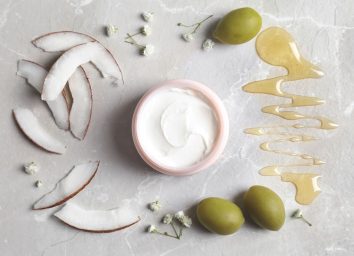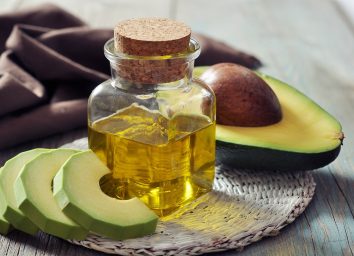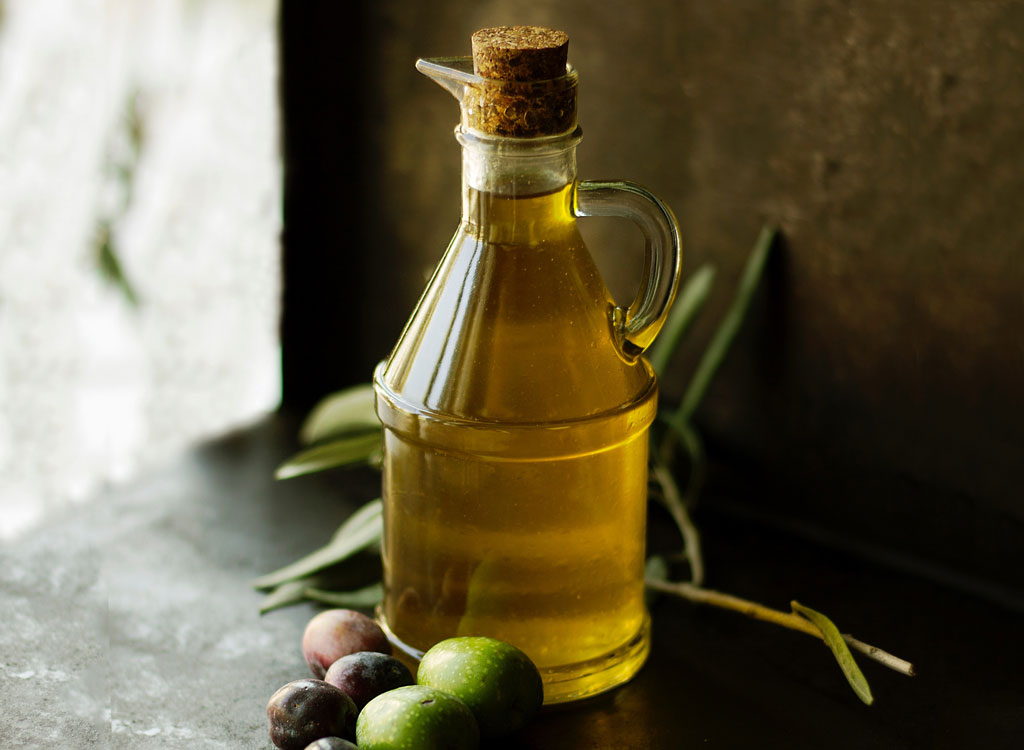
Olive oil is a pantry staple. For most home cooks, it's a go-to, heart-healthy cooking oil or salad dressing base. But, how much do you really know about choosing the best olive oil for your cooking needs?
Olive oil is rich in monounsaturated fat, specifically the fatty acid oleic acid, which has been shown to reduce inflammation and offer cancer-fighting properties. It's also packed with antioxidants, and research has shown that olive oil can lessen the risk of heart disease, arthritis, and other health conditions.
Many monounsaturated fats can withstand high heat, so it's a good option for cooking. It's also full of flavor and is a healthy choice for a finishing oil or a vinaigrette.
What should you look for when shopping for olive oil?

You should look for several things, says Vincent Ricchiuti, director of operations at the fourth-generation Ricchiuti Family Farms in the San Joaquin Valley of California, maker of Enzo Olive Oil Co.
"It's just knowing the producer, knowing where the oil is coming from, reading the label and really understanding what's being put in that bottle and understanding harvest dates," Ricchiuti says. "The more you become aware of those types of things, the more that you're going to connect with the oil, connect with your food."
Always buy extra virgin olive oil, no matter how you use it.

Ricchiuti recommends extra virgin olive oil for just about any purpose, whether you're cooking with it or using it as a drizzle.
Extra virgin olive oil, often shortened to EVOO, is the highest-quality classification for the oil. An EVOO distinction means the oil doesn't have any defects or added solvents, according to the Olive Oil Times. EVOO should also carry the flavor of fresh olives.
To receive an extra virgin designation, the oil must pass two different tests, Ricchiuti explains. Its acidity levels are tested, and the oleic acid must be less than 0.8 grams per 100 grams of oil for it to be considered extra virgin. The oil also undergoes a sensory test, where professional taste-testers look for defects and fruity flavors.
"My recommendation would be [that] you should always buy EVOO, even when you're cooking. Because those flavor profiles and those health benefits are still there, and it's important that you use good tasting oil through every stage of your cooking process," Ricchiuti said.
Extra virgin olive oil is often more expensive than other varieties, such as virgin, light, extra light, or ones simply labeled "olive oil." But Ricchiuti says there's a reason the other oils are so much cheaper. They might be more refined, more adulterated, or they may contain old oil and be of lesser quality. Plus, they likely lack flavor and may not have as many health properties.
However, virgin may be OK in some cases, he said, like using it for a stir-fry. He suggests that it's better than other vegetable oils, like corn oil.
Look for dark glass bottles or metal tins.
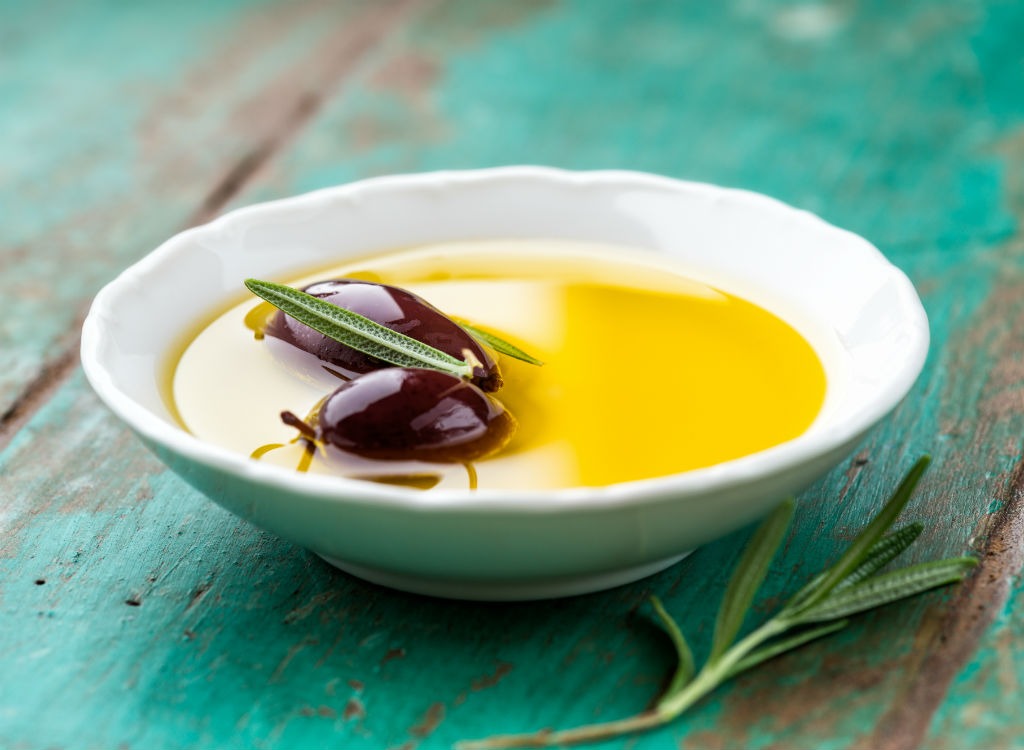
Light and heat can degrade olive oil, Ricchiuti explains. He recommends only buying EVOO that comes in dark glass bottles or metal tins. If you can, avoid purchasing oil that comes in a plastic container or a clear or light-colored glass bottle, because it might spoil faster.
Check for a recent harvest date.
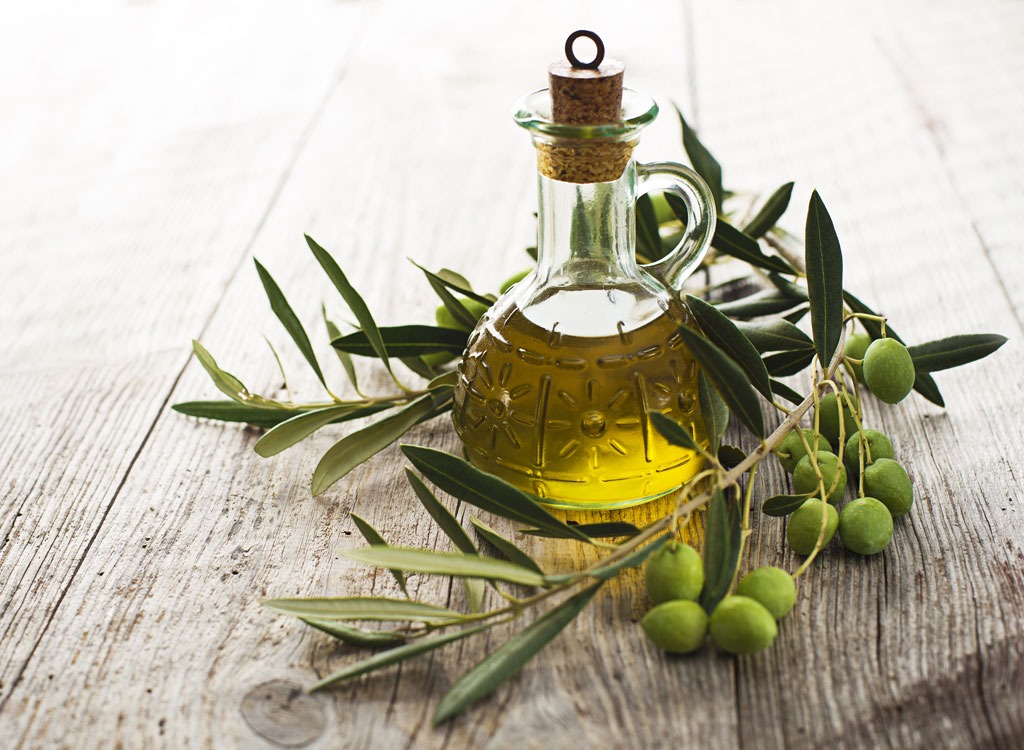
Even if they're labeled extra virgin olive oil, bottles don't always meet the criteria for that distinction and may contain blends of different oils. Reading labels is key to making sure you're getting the best quality product.
Along with looking for the "extra virgin" description, Ricchiuti suggests looking for a harvest date or best-by date. The harvest date, which shows when the oil was made, should be as recent as possible. (After all, fresh oil is always best.) Older, less fresh varieties began to lose their health benefits and flavors.
Pay attention to where the oil comes from.
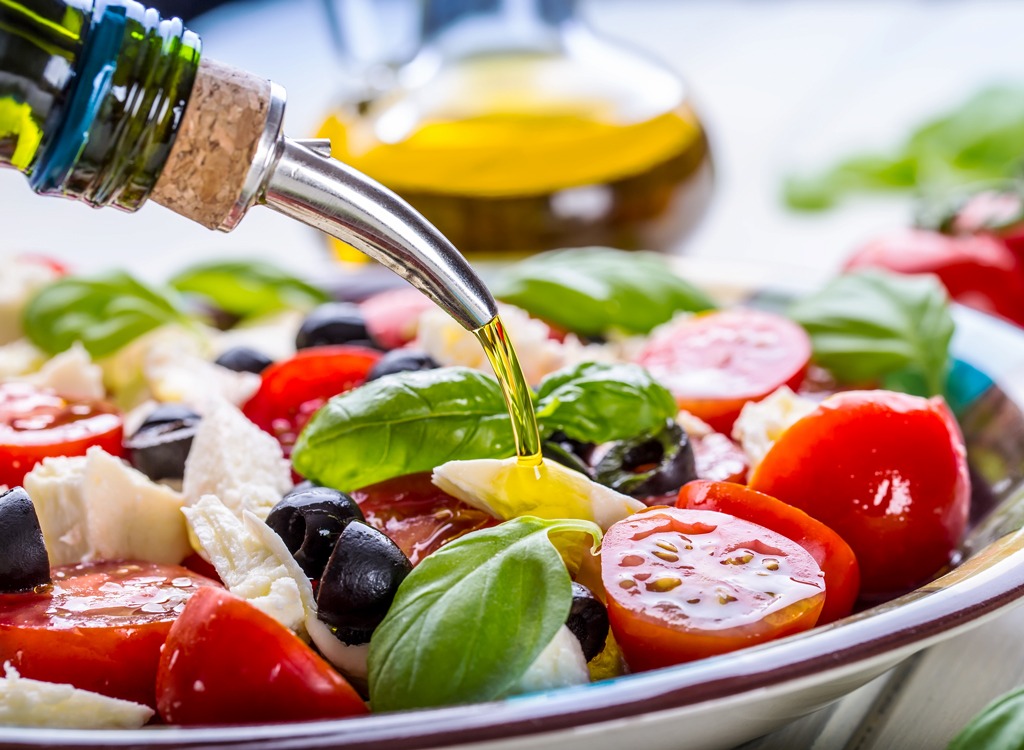
Look for the region where the oil was made. If multiple locations are listed, it's a red flag, usually meaning that the oil was made from a blend of olives from different areas.
Ricchiuti says that California-made varieties, like Enzo, should have a certified seal from the California Olive Oil Council, with the harvest year.
Labels also should list the producer or farm. And if you're looking for an organic product, make sure it has the U.S. Department of Agriculture's certification label.
Review the list of ingredients.

Another thing to check is the list of ingredients. Make sure "100 percent extra virgin olive oil" is the only thing listed. Some cheaper, lower-quality oils may include olive oil that's been blended with other kinds of oils, Ricchiuti says.
Store your oil properly at home.
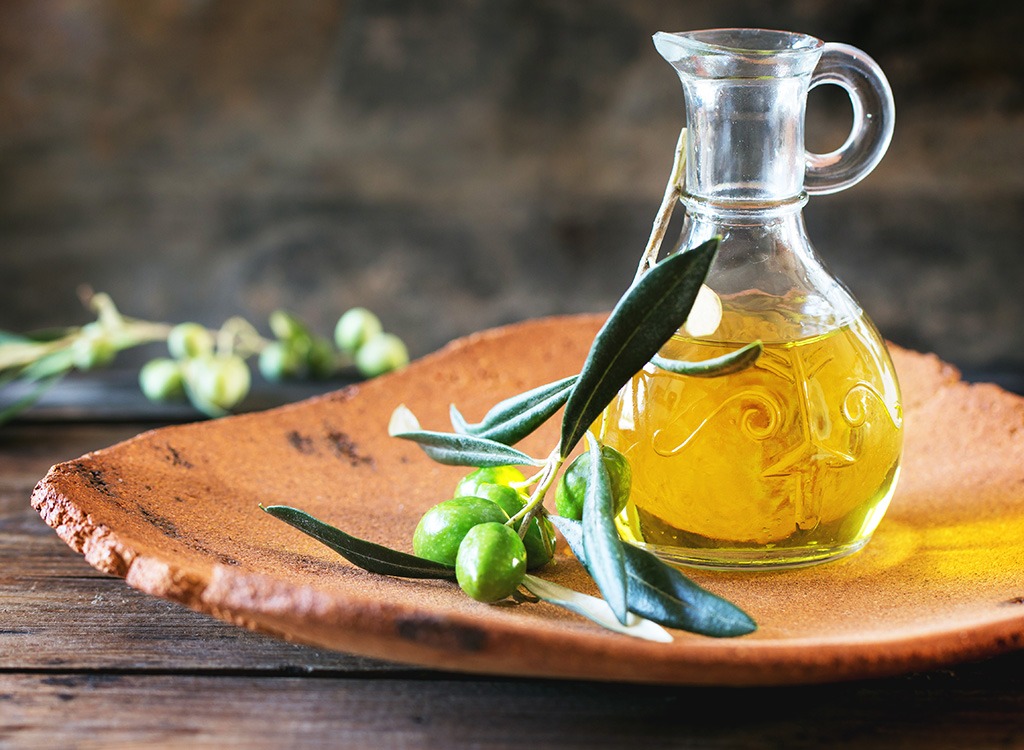
Because olive oil is sensitive to heat and light, Ricchiuti says it should be stored in a cool, dark place.
"You don't want to store it on your kitchen counter in direct light or keep it on your kitchen counter right next to your stove, which is probably the hottest place in the house," he explains. Also, if you pour the oil into a decanter, make sure the vessel is opaque so light can't get in.
Once a bottle is open, it can last for four to six months, as long as it has been stored properly, Ricchiuti says.
What are some creative ways to use olive oil?
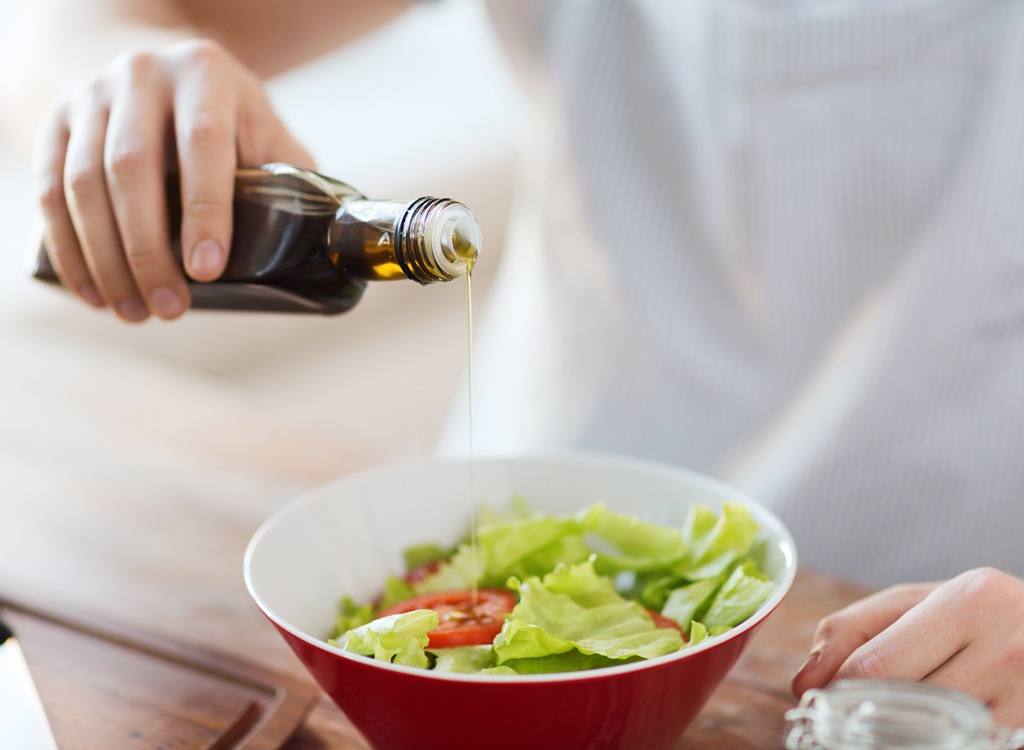
Olive oil is commonly used to sauté meat or vegetables or as a main ingredient in salad dressings. But Ricchiuti says there are so many other ways to use it, including as a finishing oil drizzled over a bowl of soup or pasta dish just before serving.
He also notes that he and his wife regularly use it in place of butter when baking treats like chocolate chip cookies, cakes, and pancakes.
Olive oil can even be used to make ice cream. Ricchiuti urges home cooks to experiment with different ways of using this oil; it's more versatile than many people might believe.
We love this citrus olive oil cake from Cookie + Kate and these whole wheat olive oil chocolate chip cookies from Ambitious Kitchen.
"There are always fun ways to use it," Ricchiuti says. "People need to not be scared of it. It's good fat. It's very healthy. It has lots of flavor and health benefits. And, so when you do drizzle a little bit on top, tilt your hand a little bit more and pour a little bit more out."
Now that you know how to find the best olive oil when shopping, the only question is what recipe you'll try first.
